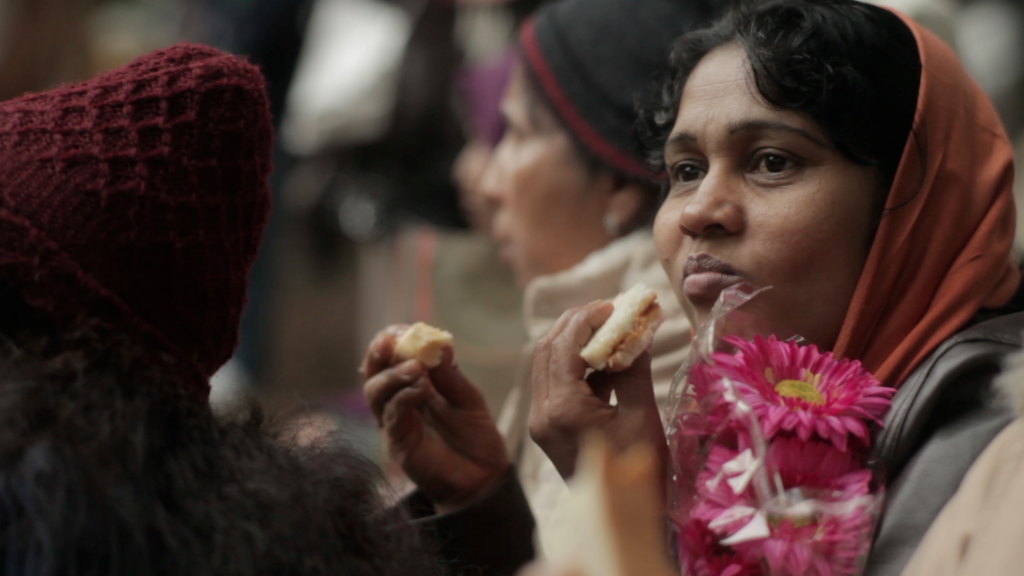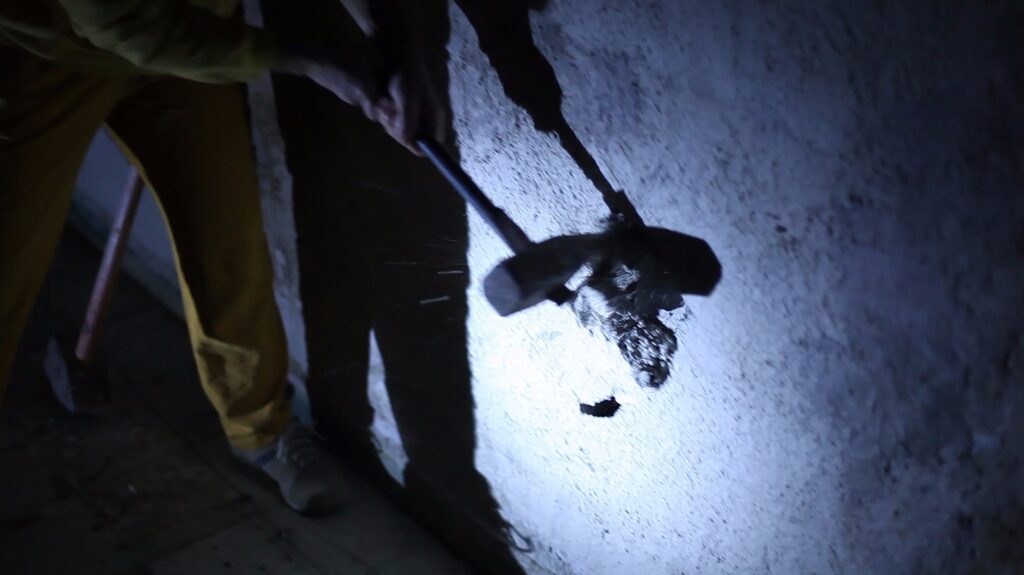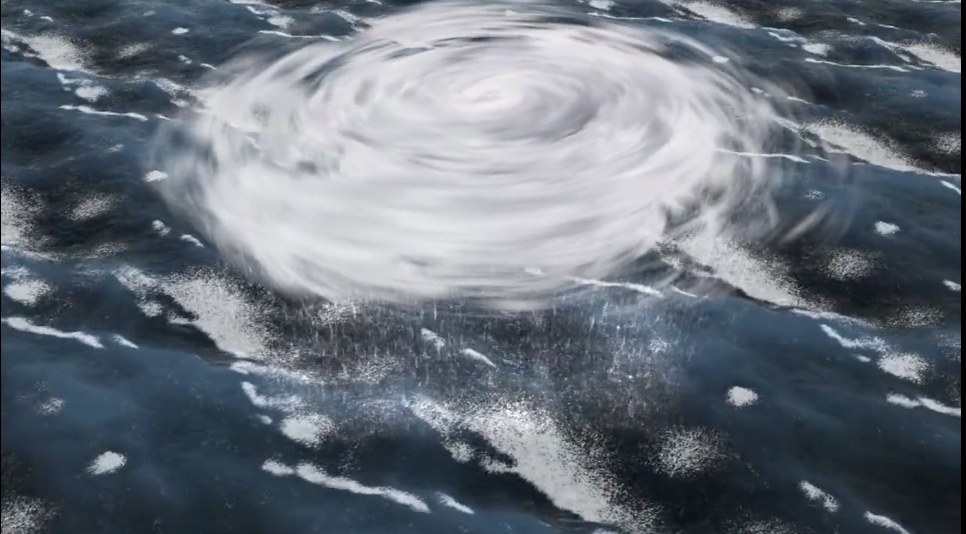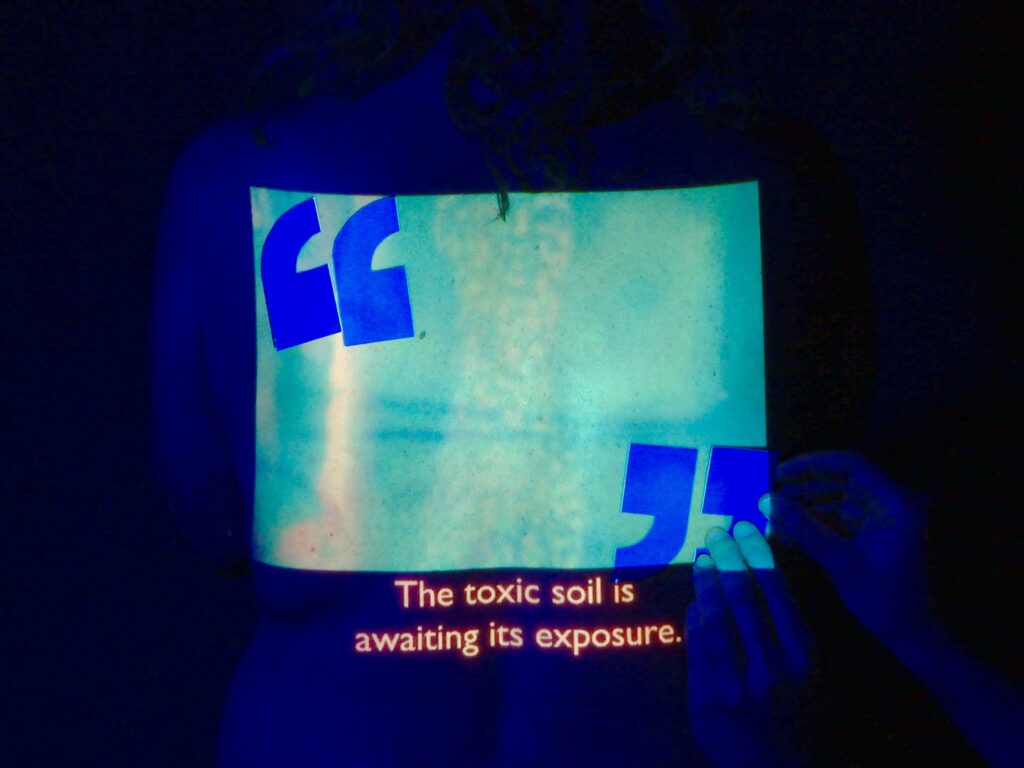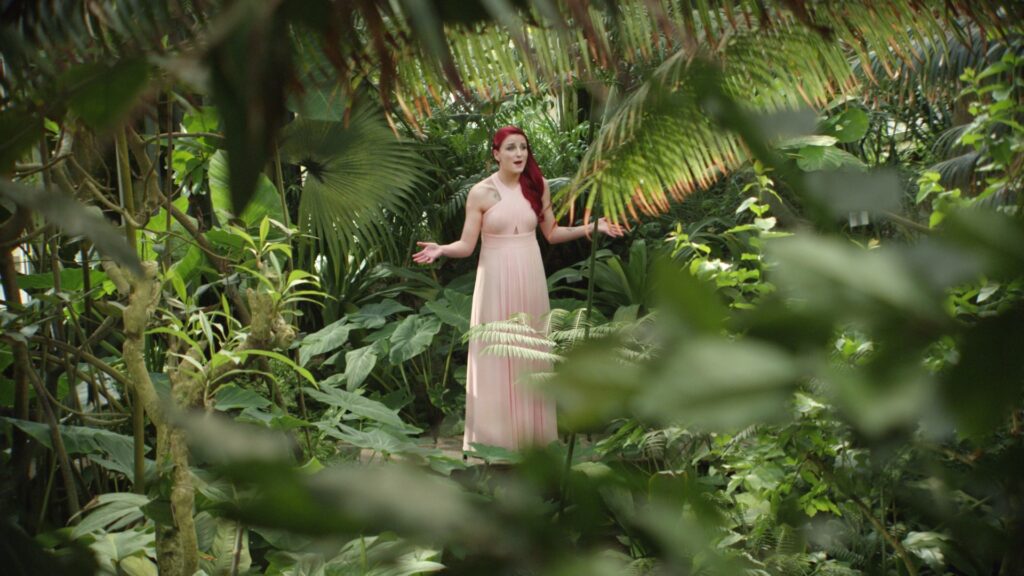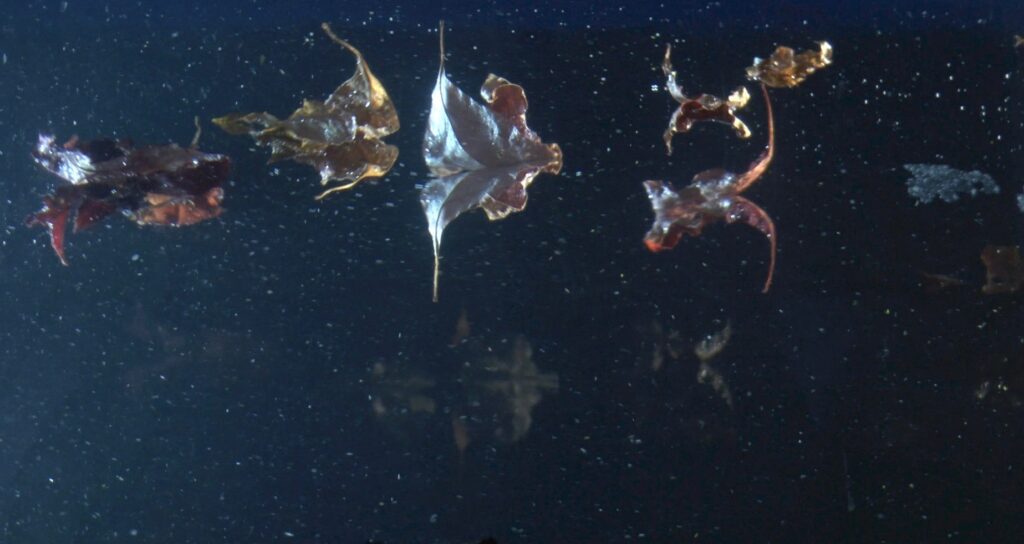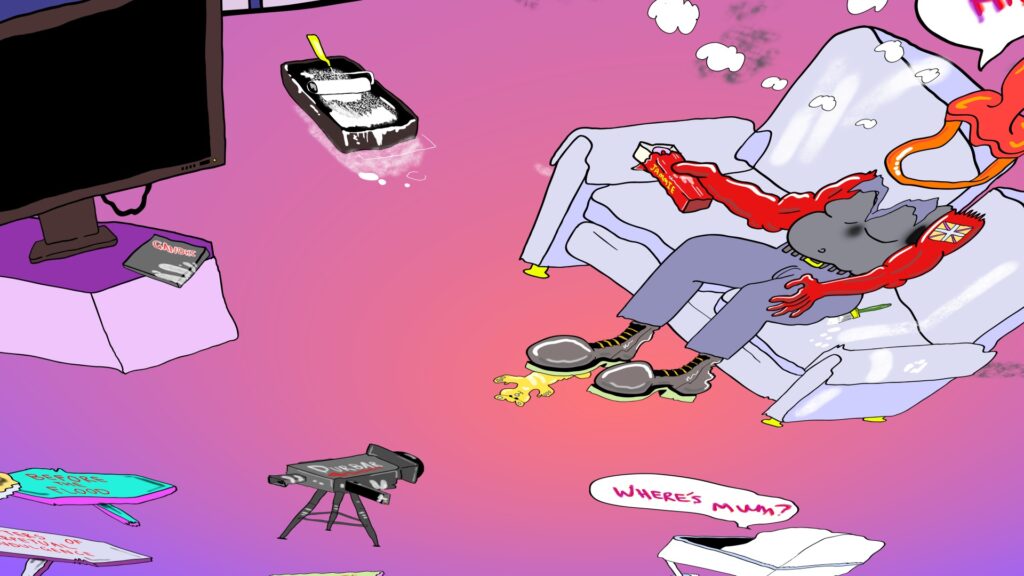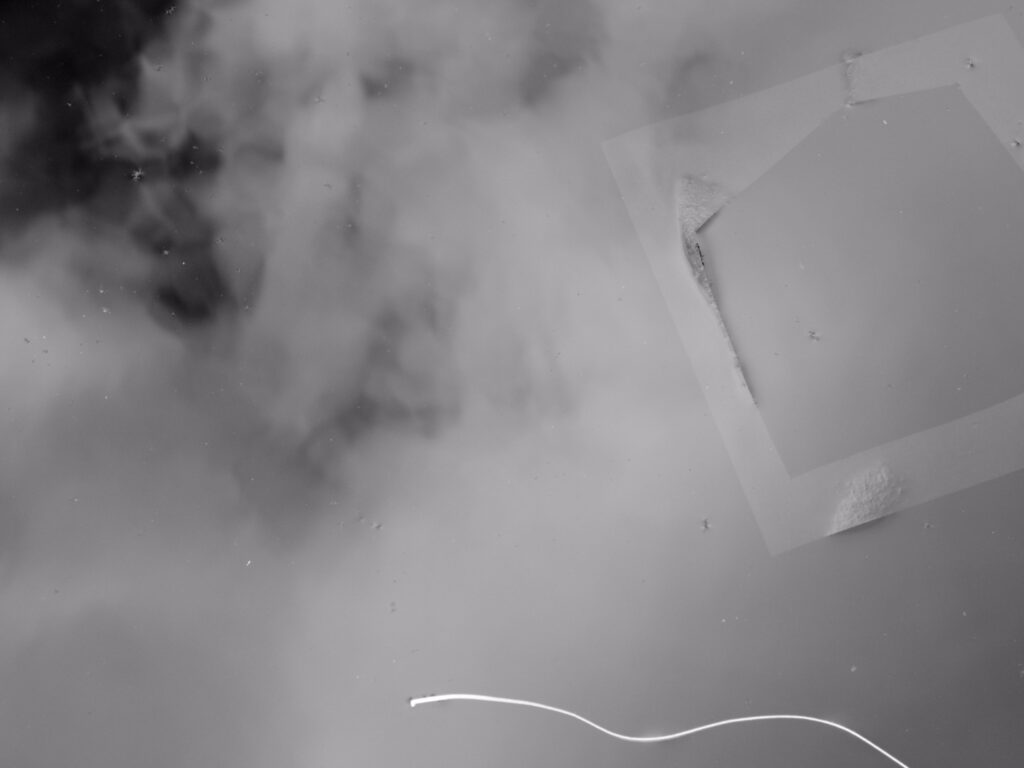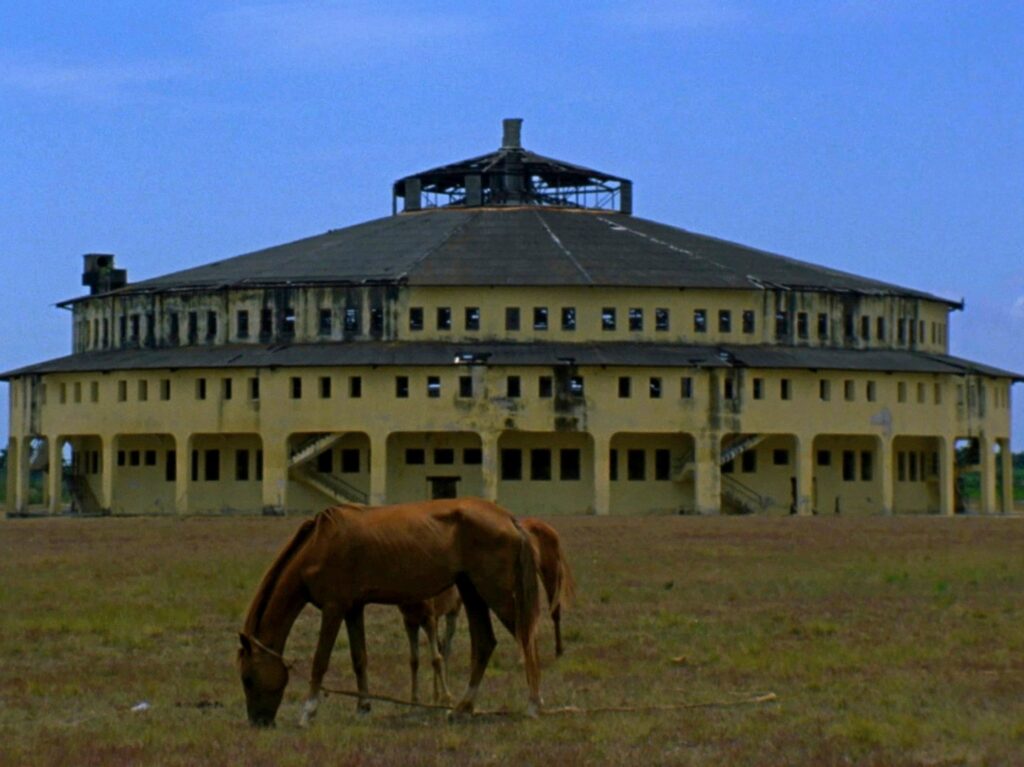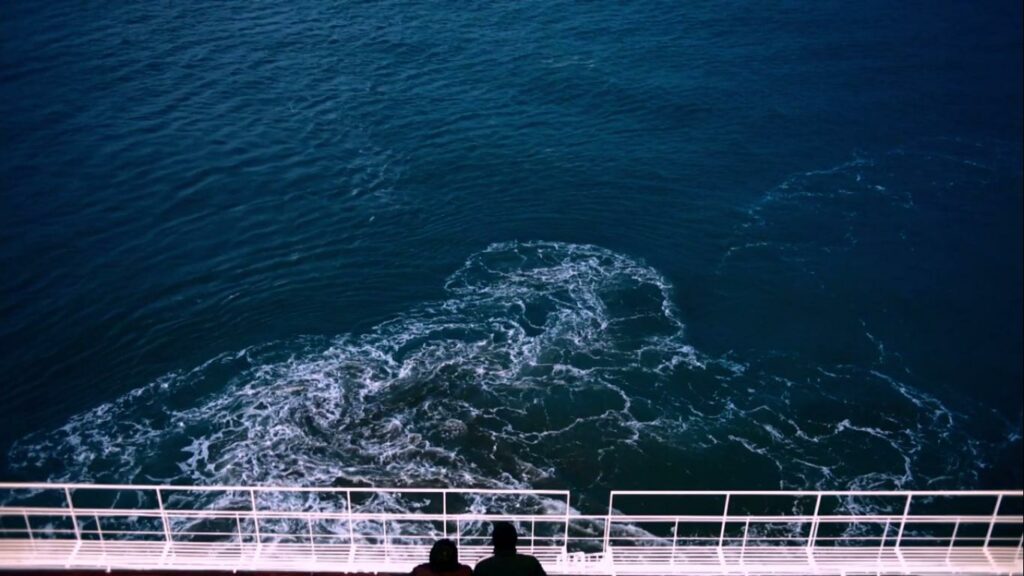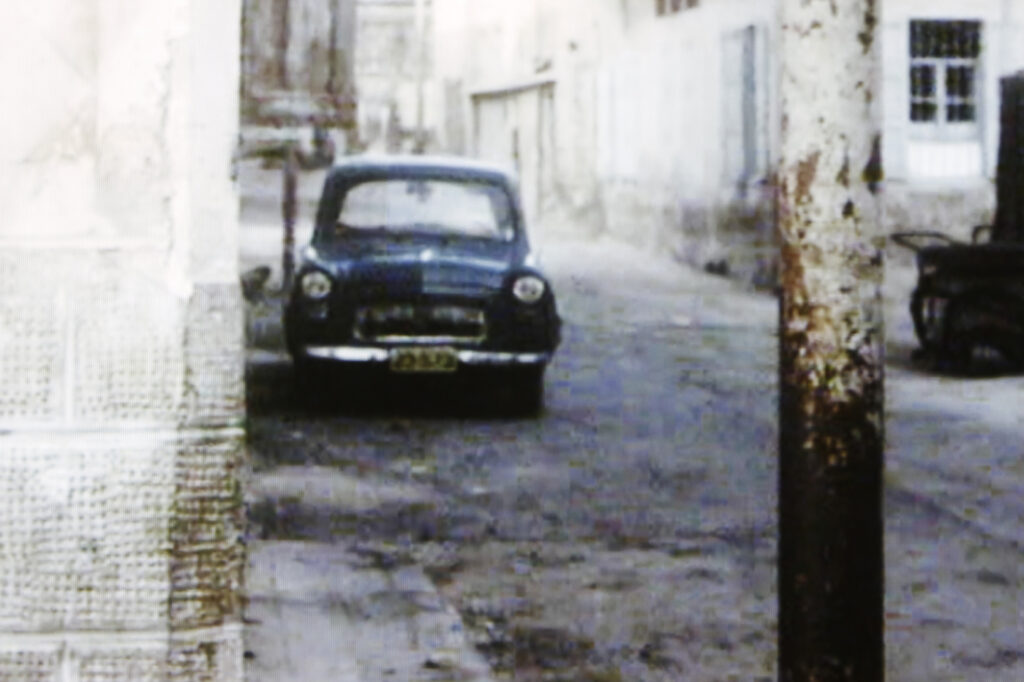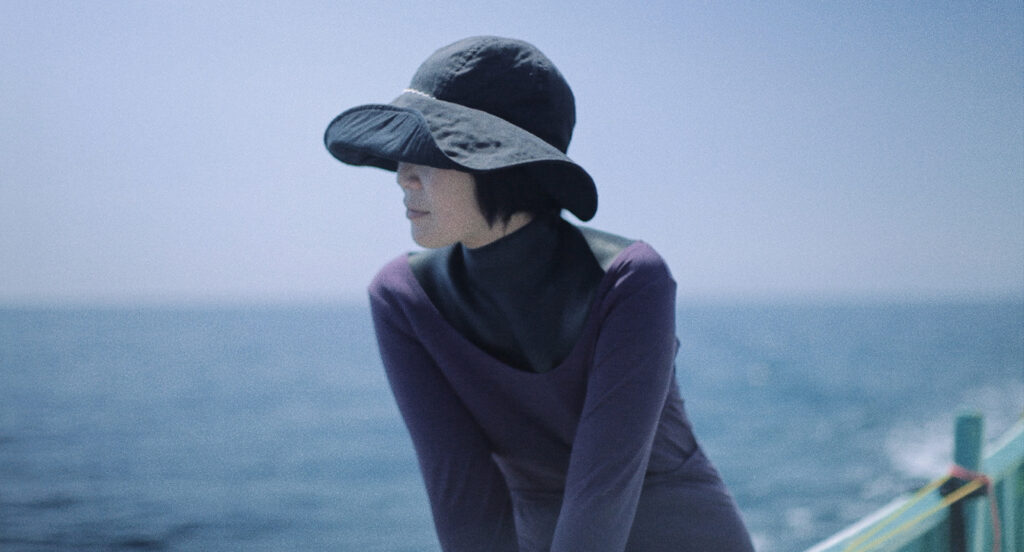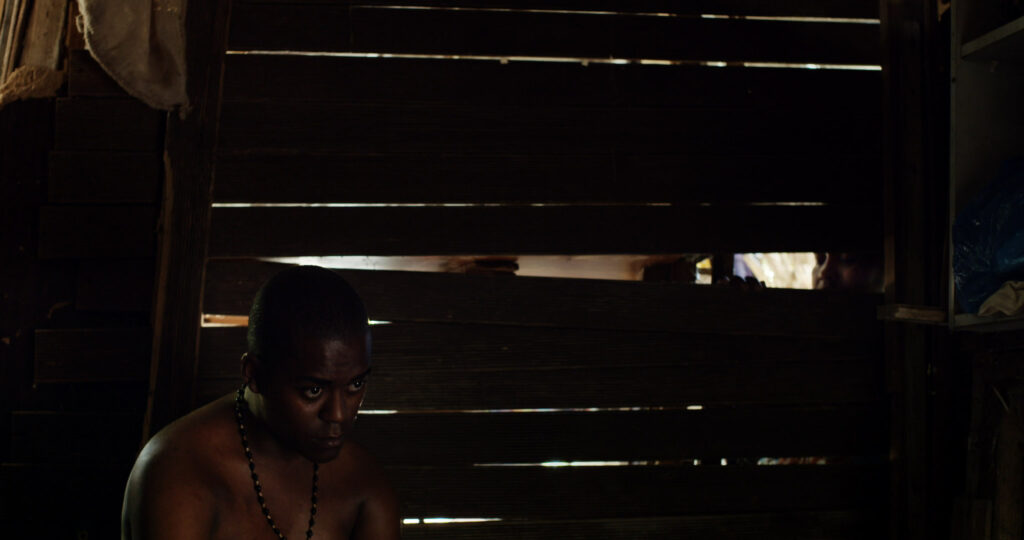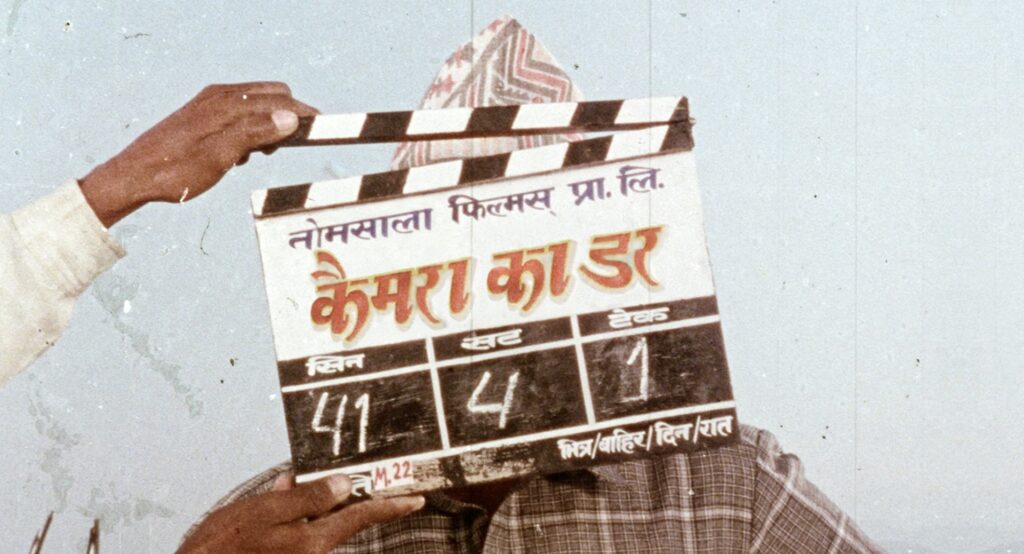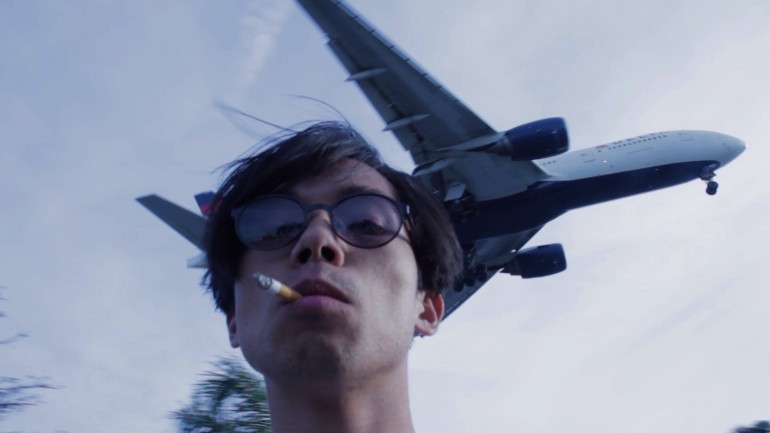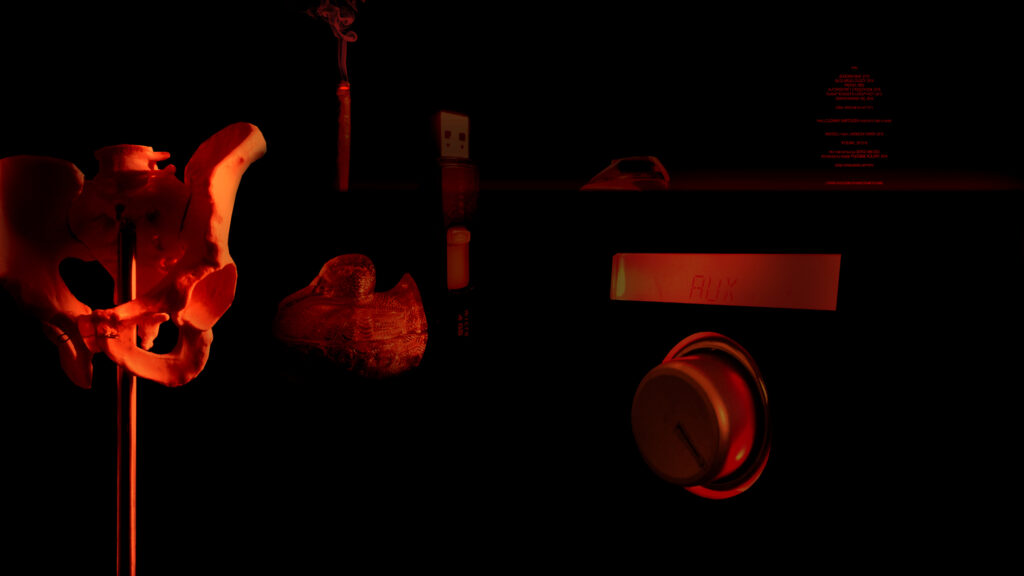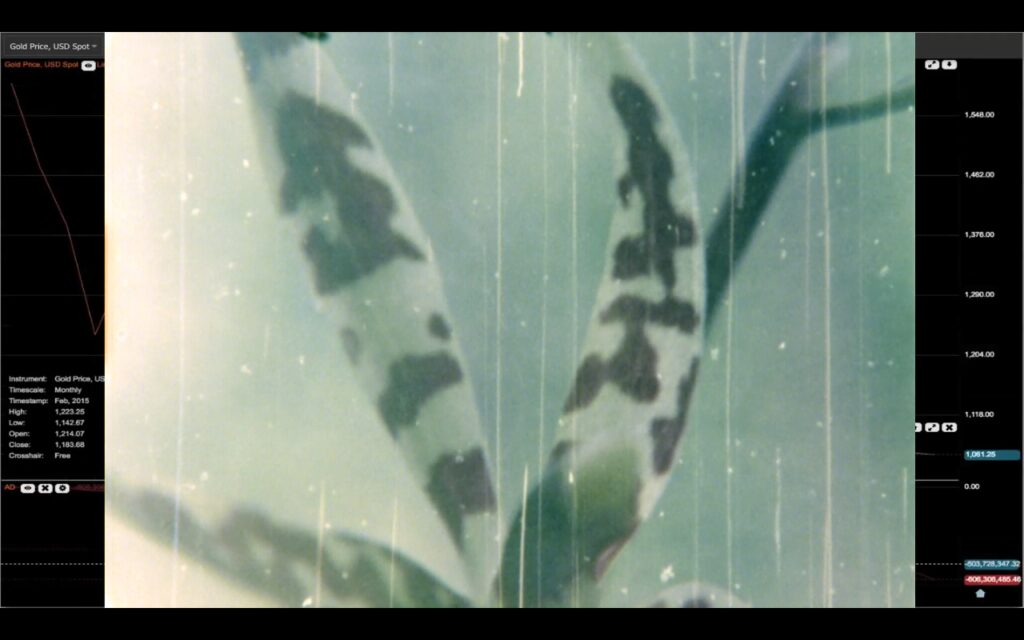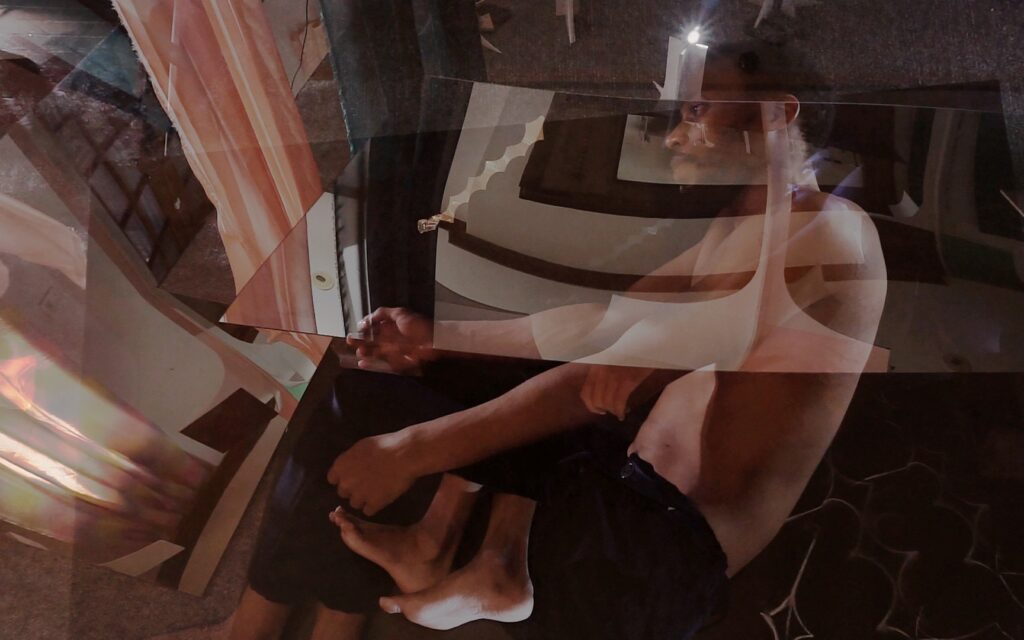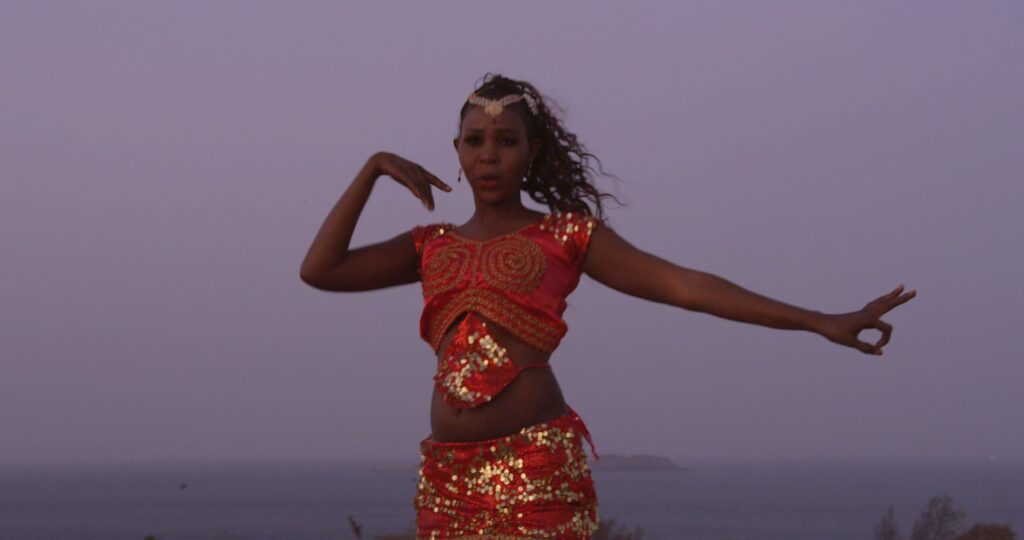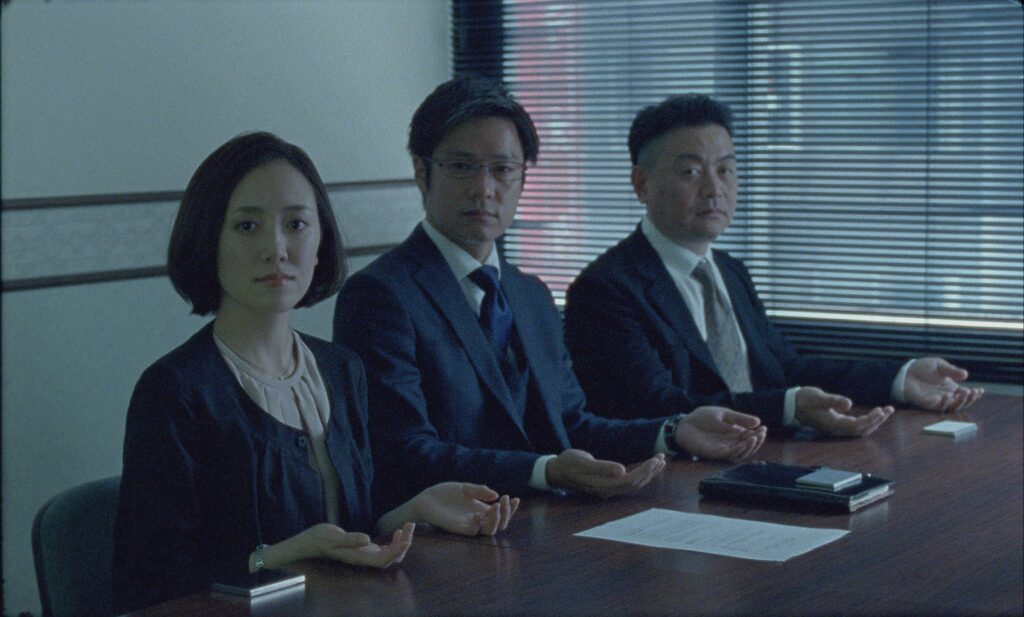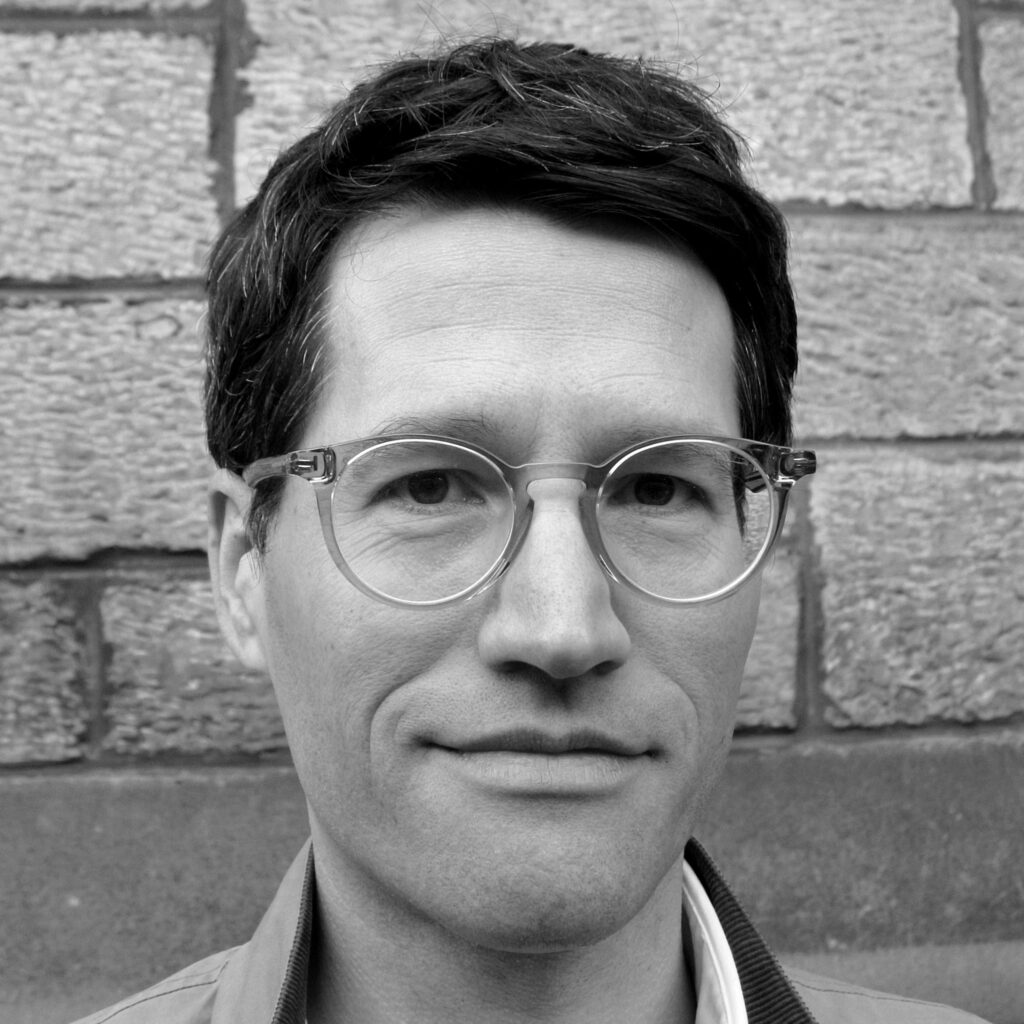
Aurélien Froment
Aurélien Froment has developed his practice through a deviant interest in cinematic experimentation. Following intensive research, his works channel collective and individual histories and ideas of concrete utopias, tracing their origins and circulation through to the present day. From films conceived as small theatres (The Apse, the Bell and the Antelope, 2005), to large-scale photographic installations (Théâtre optique, 2023), his work has been presented in institutions internationally including at Les Rencontres de la photographie (2023), Centre Pompidou (2022), Institut pour la photographie (2021), Wellcome Collection (2019), M Museum (2017), Dakar Biennale (2016), Sydney Biennale (2014), Venice Biennale (2013), and Gwangju Biennale (2010).
An essay in five parts, Evaporating Borders offers a series of vignettes, poetically guided by the filmmaker’s curious eye and personal reflections. Through the people she encounters along the way, the film dissects the experience of asylum seekers in Cyprus : A PLO activist and exile from Iraq is denied asylum within 15 minutes; neo-nazi fundamentalists roam the streets in an attack on Muslim migrants; activists and academics organize an antifascist rally and clash with the neo-nazis; 195 migrants drown in the Mediterranean.
Join Ilona Jurkonytė, curator of the programme Ultramarine: The Sea as Political Space and Artistic Director of the Kaunas International Film Festival, Lithuania, for an informal discussion.
A dive, the midday sunlight filtering down through the water. The air in
her lungs has to last until she can dislodge the abalone. Dives like
these have been carried out in Japan for over 2000 years by the Ama-San, that literally translates “women of the sea”.


